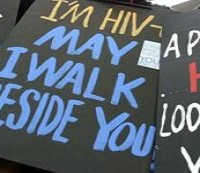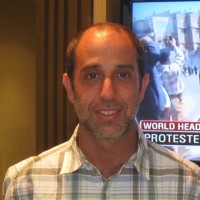“두 나라 민주화.인권 위해 힘쓸 것”
(서울=연합뉴스) 양태삼 기자 = “우리가 대한민국의 인권과 버마(미얀마)의 인권을 위해 실천해왔기에 이런 판결이 나온 것이라고 생각합니다. 정의가 살아 있다는 것을 확인했습니다.”
미얀마 출신의 인권활동가인 소모뚜(36)씨는 난민 지위를 불허한 법무부 결정에 대한 대법원 최종심에서 이겨 법무부로부터 곧 난민인정결정서를 받는다.
법무부가 ‘미얀마에서 민주화 활동이 소극적이었고 귀국해도 처벌받지 않을 것’이라며 그의 난민 신청을 2009년 기각하자 그는 그해 ‘난민인정 결정 불허결정 처분 취소’ 청구 소송을 법원에 제기해 1심에서 패소했으나 작년 11월 2심에선 승소했다.
그는 3일 연합뉴스와 만나 “우리 활동이 소극적이었고, 미얀마에 가더라도 위험하지 않으리라는 것은 잘못된 것”이라며 “지금도 반정부 만화를 블로그에 올리는 것만으로도 15년 감옥형을 선고받는 미얀마의 상황에서 한국 정부의 그같은 판단은 나름대로 열심히 살았다고 자부한 우리에 대한 모욕”이라고 말했다.
그는 2004년 불법체류 노동자들의 농성 과정에서 동료와 함께 ‘버마행동 한국’을 창립, 매달 한번씩 미얀마 대사관 앞에서 회원들과 함께 시위를 하거나 유인물을 나눠주며 ‘민주화 운동’을 벌이고 있다.
이들은 1988년 집권한 미얀마의 현 정부가 국호를 미얀마로 바꾸자 이에 반대하고 정체성을 지킨다는 뜻에서 ‘버마’라는 옛 이름을 고수하고 있다.
그는 “대한민국도 군사독재 시절을 겪었고, 우리 같은 사람도 있었는데 그걸 왜 이해하지 못하는 지 서운했다”며 “이번 확정 판결로 정의가 있다는 것을 확인했다”고 말했다.
나아가 “버마행동은 버마의 민주화를 위해 활동하는 단체이지만 지금 우리가 살고 있는 곳도 인권과 민주화가 제대로 되길 원한다”며 “인권을 무시하는 정부는 모두 항의대상이다”고 말했다.
그는 난민으로 인정받은 후 활동에 대해 “지금까지 해온 그대로 앞으로 활동할 것”이라며 “다만 앞으로 해외 여행을 할 수 있으니 활동 무대를 국제적으로 넓히는 방안을 모색중”이라고 말했다.
이주노동자로 구성된 음악밴드 ‘스톱 더 크랙다운(Stop the Crackdown)’의 보컬과 기타를 맡은 그는 “세계 2억명이 넘는 이주민에게 희망과 용기를 줄 수 있는 음악을 만드는 밴드로 키워 나갈 것”이라고 말했다.
그는 “이주민이라도 기죽을 필요 없이 인권과 노동권을 보장받고, 당장 어렵고 힘들어도 살아갈 길이 있다는 것을 알려주고 싶다”며 “우리가 무대에 오르듯 이주민도 무대의 주인공이 될 수 있다는 메시지를 전하고 싶다”고 말했다.
1995년 여행 비자로 한국에 온 그는 미등록 이주 노동자로 지내다 2004년 난민 신청을 했다. 버마행동한국에 속한 다른 회원 7명도 소모뚜 씨와 함께 이번 소송에서 이겨 난민 인정 결정서를 받는다.
소모뚜 씨의 소송을 맡았던 공익변호사 그룹 공감의 황필규 변호사는 “불법체류자가 난민으로 둔갑해서는 안되지만 이번에 보듯이 6년간 데모를 해야 난민으로 인정받는다면 한국이 난민 인정에 너무 야박하고 인색한 게 아닌가 싶다”고 말했다.
한편 법무부 국적ㆍ난민과 관계자는 “대법원의 판결문을 아직 받지 못했기 때문에 난민 인정 증명서를 언제쯤 발급해 줄 지 알 수 없다”고 말했다.
(이주노동자방송국 사무실서 포즈를 취한 소모뚜 씨)
tsyang@yna.co.kr
Originally published at : http://www.yonhapnews.co.kr/bulletin/2011/03/03/0200000000AKR20110303092700069.HTML?did=1179m


